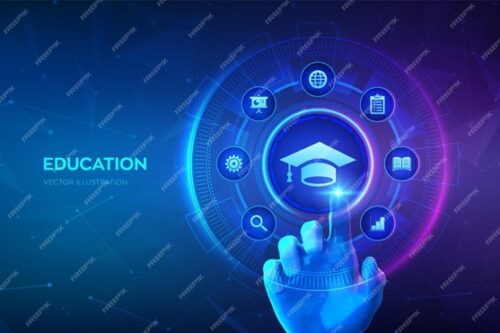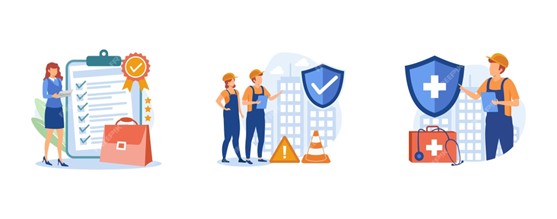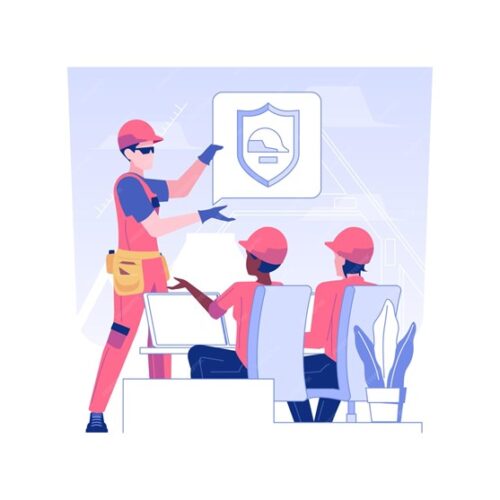In today’s fast-paced world, the way we learn and acquire new skills is rapidly evolving. Traditional brick-and-mortar classrooms are no longer the only option for education. The rise of online courses and eLearning has revolutionised the way people access knowledge and professional development. This article explores the advantages of online courses, the future of education in the digital age, and how eLearning is reshaping the way we learn.
The Rise of Online Courses and eLearning
Online courses have become increasingly popular over the past few years. With the advent of the internet, learning has become more accessible than ever before. People can now learn from the comfort of their homes, at their own pace, and with flexible schedules. Whether you want to acquire new skills for personal growth or enhance your professional expertise, online courses offer a wide range of options to suit your needs.
One of the key advantages of online courses is the flexibility they offer. Unlike traditional classroom-based learning, online courses allow individuals to learn at their own pace and on their own schedule. This is particularly beneficial for working professionals who may have limited time to attend traditional classes. With online courses, you can learn anytime, anywhere, making it convenient for those with busy lifestyles.
Advantages of Online Courses and eLearning
Online courses offer several advantages over traditional classroom-based learning. In the first place, they offer access to a wide variety of topics and subjects. Whether you’re interested in learning a new language, mastering a specific skill, or gaining knowledge in a particular field, there is likely an online course available to cater to your interests.
Additionally, online courses often offer interactive learning experiences. Through multimedia elements such as videos, quizzes, and virtual simulations, learners can engage with the course material in a more immersive way.
This interactive approach not only enhances the learning experience but also increases retention and understanding of the subject matter.
Another advantage of online courses is the opportunity for personalised learning. With online learning platforms, learners can often customise their learning experience to suit their individual needs. They can choose the pace at which they progress through the course, revisit concepts they find challenging, and focus on areas that are most relevant to their goals. This level of personalisation allows for a more tailored and effective learning experience.
The Future of Education: eLearning Trends and Predictions
As technology continues to advance, the future of education lies in eLearning. The digital transformation of the education sector is well underway, and eLearning is at the forefront of this revolution. With the increasing demand for flexible and accessible learning options, it is predicted that eLearning will continue to grow in popularity and become the primary mode of education delivery in the future.
One of the key trends in eLearning is the integration of artificial intelligence (AI) and machine learning. These technologies have the potential to transform the learning experience by providing personalised recommendations, adaptive assessments, and intelligent feedback. AI-powered eLearning platforms can analyse learner data and tailor the course content to individual needs, making the learning process more efficient and effective.
Another emerging trend in eLearning is the use of virtual reality (VR) and augmented reality (AR) for immersive learning experiences. VR and AR technologies can create realistic simulations and scenarios, allowing learners to practice skills in a safe and controlled environment. This hands-on approach to learning enhances engagement and retention, particularly in fields that require practical application, such as healthcare or engineering.
What is eLearning and How Does it Work?
Before delving deeper into the advantages and future of eLearning, it’s important to understand what eLearning is and how it works. eLearning, or electronic learning, refers to the use of digital technologies to deliver educational content and facilitate learning. It encompasses a wide range of formats, including online courses, webinars, virtual classrooms, and interactive modules.
eLearning works by leveraging various digital tools and platforms to deliver educational content to learners. These platforms typically provide access to course materials, such as videos, presentations, and reading materials, as well as interactive elements like quizzes and assignments. Learners can access these materials and engage with the course content at their own pace and convenience.
The delivery of eLearning courses can vary depending on the platform and the course provider. Some courses may be self-paced, allowing learners to complete modules and assessments at their own speed. Others may follow a more structured approach, with set deadlines and live virtual classroom sessions. Regardless of the delivery method, eLearning offers learners the flexibility to learn at their own pace and convenience.
Types of Online Courses and Classes Available
Online courses come in various formats and cater to a wide range of subjects and disciplines. Whether you’re interested in learning a new language, acquiring coding skills, or pursuing a degree, there is an online course available to suit your needs. Here are some of the most common types of online courses and classes available:
- Skill-based courses: These courses focus on developing specific skills, such as graphic design, photography, or digital marketing. They often include hands-on assignments and practical projects to reinforce learning.
- Academic courses: Online academic courses offer the opportunity to earn credits towards a degree or diploma. Universities and educational institutions offer a wide range of online courses in subjects like business, psychology, and computer science.
- Language courses: Online language courses are a popular choice for individuals looking to learn a new language or improve their language skills. These courses often include interactive exercises, pronunciation practice, and cultural insights.
- Professional development courses: These courses are designed to enhance professional skills and knowledge in specific industries or job roles. They can cover topics like leadership, project management, or data analysis.
Popular Platforms for Online Courses and eLearning
There are numerous platforms available that offer online courses and facilitate eLearning. These platforms provide a wide range of courses from various providers, making it easy for learners to find the right course for their needs. Here are some of the most popular platforms for online courses and eLearning:
Coursera: Coursera is a leading platform that partners with top universities and organizations to offer a wide range of online courses. Learners can choose from individual courses or pursue a specialisation in a specific field.
WHS and Training Compliance Solutions: WHS and Training Compliance Solutions is an online learning marketplace that hosts a vast library of courses on various subjects. It offers paid courses, allowing learners to choose based on their budget and learning goals.
edX: edX is a nonprofit platform that offers courses from renowned universities and institutions. It provides access to high-quality, university-level courses across a wide range of disciplines.
LinkedIn Learning: LinkedIn Learning offers a vast library of courses taught by industry experts. It covers a wide range of topics, including business, technology, and creative skills.
Tips for Make the Most of Your Online Learning Experience
While online courses offer numerous advantages, they also require discipline and self-motivation to succeed. Here are some tips to help you make the most of your online learning experience:
- Create a dedicated study space: Set up a designated area in your home where you can focus on your online courses without distractions. Having a dedicated study space can help you stay organised and maintain a productive learning environment.
- Set clear goals: Define your learning goals and objectives before starting an online course. This will give you a sense of direction and motivation throughout the learning journey.
- Manage your time effectively: Online courses offer flexibility, but it’s important to manage your time effectively. Set aside dedicated time each day or week to work on your course material and assignments.
- Engage with the course community: Many online courses have discussion forums or community platforms where learners can connect and collaborate. Take advantage of these opportunities to engage with fellow learners, share insights, and seek help when needed.
- Seek support when needed: Don’t hesitate to reach out to the course instructor or support team if you have questions or need clarification. Online courses often provide avenues for seeking assistance, so make use of these resources to enhance your learning experience.
The Benefits of eLearning for Working Professionals
eLearning offers several benefits specifically tailored to the needs of working professionals. Here are some advantages of eLearning for those juggling work and education:
- Flexibility: Online courses allow working professionals to balance their work commitments with their educational pursuits. They can learn at their own pace and on their own schedule, making it easier to fit learning into their busy lives.
- Professional development: eLearning provides the opportunity for working professionals to enhance their skills and knowledge in their respective fields. This can lead to better job prospects, career advancement, and increased earning potential.
- Cost-effective: Online courses are often more affordable than traditional classroom-based courses. Working professionals can save on commuting expenses, accommodation, and other costs associated with attending physical classes.
- Networking opportunities: Many online courses provide networking opportunities with fellow professionals in the same industry. This can lead to valuable connections, collaborations, and career opportunities.
The Impact of eLearning on Traditional Education Systems
The rise of eLearning has had a significant impact on traditional education systems. While traditional classroom-based learning is still prevalent, eLearning has challenged the traditional notion of education and forced educational institutions to adapt to the digital age.
eLearning has provided a platform for lifelong learning, allowing individuals to acquire knowledge and skills at any stage of their lives. This has led to a shift in the perception of education as a one-time event to a continuous process of self-improvement and growth.
Additionally, eLearning has opened up access to education for individuals who may not have had the opportunity to pursue traditional education due to geographical constraints, financial limitations, or other barriers. It has democratised learning, making education more inclusive and accessible to a wider audience.
The Role of eLearning in Professional Development
eLearning plays a crucial role in professional development by providing opportunities for individuals to acquire new skills, enhance existing ones, and stay up-to-date with the latest industry trends. Continuous learning is essential in today’s rapidly evolving job market, and eLearning offers a convenient and flexible way to achieve professional development.
eLearning platforms often partner with industry experts and organisations to offer courses that are directly relevant to the needs of working professionals. This ensures that the course content is up-to-date, practical, and aligned with industry standards. Professionals can choose courses that are specifically tailored to their career goals and acquire the skills they need to succeed in their respective fields.
Conclusion
eLearning has revolutionised the way we approach education and learning. Online courses offer numerous advantages, including flexibility, personalised learning experiences, and access to a wide range of subjects and topics. As technology continues to advance, eLearning is set to become the future of education, with trends such as AI and VR shaping the learning experience.
Whether you’re a working professional looking to enhance your skills or someone seeking personal growth, eLearning provides a flexible and accessible avenue for learning. With a wide range of online courses available on popular platforms, the opportunities for acquiring knowledge and professional development. Embrace the future of education with eLearning and stay ahead of the curve.
Visit WHS and Training Compliance Solutions to explore their wide range of elearning courses and take your professional development to the next level.












